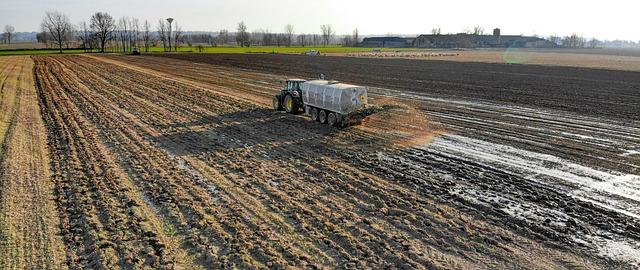“`html
Fertilizer Use and Its Impact on Pakistan’s Agriculture
Fertilizers play a pivotal role in enhancing agricultural productivity in Pakistan, a country primarily reliant on its agricultural sector for economic stability. With the growing population and the increasing demand for food, understanding the impact of fertilizer use is crucial. This article delves into the types of fertilizers, their benefits, challenges, and sustainable alternatives to optimize agricultural output in Pakistan.
The Importance of Fertilizers in Agriculture
Fertilizers are substances that provide essential nutrients to plants, promoting growth and enhancing yield. In Pakistan, agriculture employs over 40% of the workforce and contributes about 24% to the GDP, making informative knowledge of fertilizers critical.
Types of Fertilizers Used in Pakistan
- Organic Fertilizers: Derived from natural sources such as compost, manure, and green manure.
- Inorganic Fertilizers: Manufactured chemicals that provide nutrients like nitrogen, phosphorus, and potassium.
- Biofertilizers: Living organisms that enhance nutrient availability, such as rhizobia and mycorrhizae.
The Benefits of Fertilizer Use in Pakistan’s Agriculture
Utilizing fertilizers offers several advantages:
- Increased Crop Yield: Provides essential nutrients that improve growth and productivity.
- Improved Soil Fertility: Regular application enhances soil quality and its capacity to retain moisture.
- Economic Growth: Higher crop yields contribute to greater profits for farmers and the economy.
Challenges of Fertilizer Use
Despite the benefits, the misuse of fertilizers can lead to various challenges:
- Soil Degradation: Over-fertilization can deteriorate soil health, leading to reduced fertility.
- Water Pollution: Runoff from fertilizers can contaminate water bodies, harming ecosystems.
- Biodiversity Loss: Excessive use can diminish natural fauna and flora in agricultural landscapes.
Table: Key Nutrients and Their Benefits
| Nutrient | Benefits |
|---|---|
| Nitrogen (N) | Promotes leaf growth and overall plant development. |
| Phosphorus (P) | Enhances root development and flowering. |
| Potassium (K) | Improves disease resistance and fruit quality. |
Sustainable Fertilizer Practices
To mitigate the challenges while reaping the benefits, implementing sustainable practices is vital. Here are some practical tips for farmers:
- Soil Testing: Regular soil tests help determine the right fertilizer type and quantity needed.
- Integrated Nutrient Management: Combine chemical and organic fertilizers for balanced nutrition.
- Crop Rotation: Helps maintain soil health and fertility, reducing dependency on chemical fertilizers.
Case Study: The Role of Fertilizers in Wheat Production
Wheat is a staple crop in Pakistan, and the introduction of urea and DAP fertilizers has significantly boosted yields. For instance, in Punjab, extensive use of nitrogen fertilizers in wheat cultivation has led to productivity increases from 10 to 25 quintals per hectare over the last decade. This case illustrates the potential of fertilizers to alleviate food scarcity while requiring careful management to avoid environmental repercussions.
Firsthand Experience: A Farmer’s Perspective
A local farmer from Sahiwal shared his experience with fertilizer use:
“In the early years, I struggled with low yields. After learning about soil testing and using the right fertilizers, I saw my wheat yield increase significantly. I now balance organic and inorganic methods, and my profits have doubled!”
Conclusion
Fertilizer use in Pakistan’s agriculture is a double-edged sword. While it boosts productivity and supports economic growth, the associated challenges must be managed wisely. Sustainable practices such as soil testing, integrated nutrient management, and balanced fertilization can ensure that the agricultural sector in Pakistan thrives without compromising environmental health. As we move toward a future of increased food demand, the responsible use of fertilizers will be key to achieving sustainable agricultural development in Pakistan.
“`



